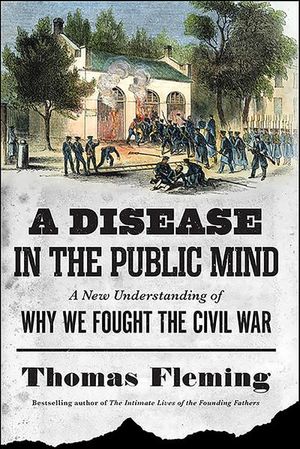A Disease in the Public Mind
Published by Grand Central Publishing
“Loaded with provocative insights, this book is a well-argued answer to that persistent question: Why did Americans fight the Civil War.” —America
By the time John Brown hung from the gallows for his crimes at Harper's Ferry, Northern abolitionists had made him a “holy martyr” in their campaign against Southern slave owners. This Northern hatred for Southerners long predated their objections to slavery. They were convinced that New England, whose spokesmen had begun the American Revolution, should have been the leader of the new nation. Instead, they had been displaced by Southern “slavocrats” like Thomas Jefferson. This malevolent envy exacerbated the South's greatest fear: a race war. Jefferson's cry, “We are truly to be pitied,” summed up their dread. For decades, extremists in both regions flung insults and threats, creating intractable enmities. By 1861, only a civil war that would kill a million men could save the Union.
In this riveting, character-driven history, respected historian Thomas Fleming traces the diseases in the public mind—the distortions of reality—that destroyed George Washington's vision of a united America and inflicted the tragedy that still divides the nation's soul.
“Makes a convincing case that the polarization that divided the North and South and led to the Civil War began decades earlier than most historians are willing to admit. A Disease in the Public Mind is an attempt to offer understanding and forgiveness for both sides of a war the continues to challenge the country’s founding principles of liberty and equality.” —Philadelphia Tribune
BUY NOW FROM
COMMUNITY REVIEWS

